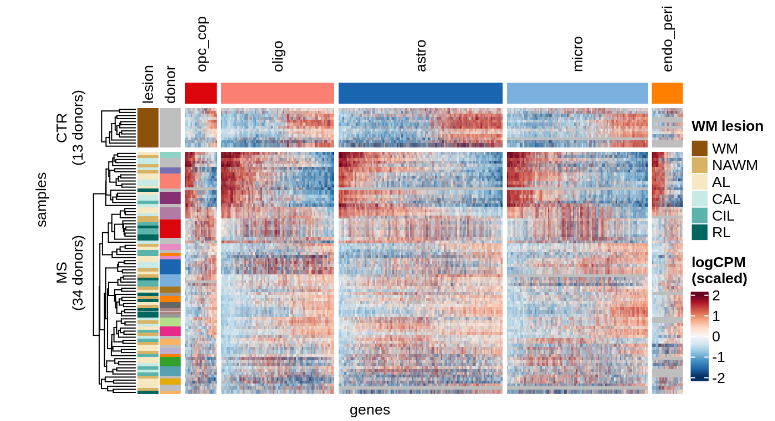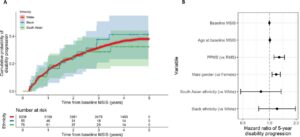
Will Macnair, et al. – Roche Innovation Centre.
In this study, Macnair and colleagues found that differential gene expression in white matter lesions from patients with MS is defined by donor variation, not lesion type. Despite dramatic differences in cell type composition, various lesion types within a donor show similar gene expression profiles. Instead, clustering was best characterized at the patient level, with patients falling into four clusters that did not align with MS subtype as currently defined or any other known variable. Each of these newly defined phenotypes may require different treatment regimens, which would explain failed trials for DMTs in progressive MS. For example, treatments targeting the inhibitory extracellular matrix proteins of Cluster 3 may not aid patients affected by the major histocompatibility complex (MHC) I genes upregulated in Cluster 4.
It must be emphasized that these analyses were performed in post mortem tissue. Further research will require identification of related biomarkers in people with MS and study of the course of disease as it relates to these factors and associated treatment regimens.




